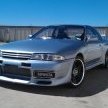Precision Pt6766 Vs Forcedperformance Gt3794R Hta Dyno Shootout
Announcements
-
Similar Content
-
Latest Posts
-
I bought an engine from a friend of a friend many years ago, it was sold to me as a RB25det Neo. recently I started pulling it apart and noticed that the intake manifold was pretty different from others that I had seen on RB engines so did a bit of research and found that it was a non turbo manifold. So I’m sceptical now that it is a NEO DET and just thinking it’s a NEO DE (it does have a turbo strapped to it currently). can you identify the engine model from the numbers on the block?
-
Yeah you can. Cable tie the gauge to a windscreen wiper, or run it into the car and hold it with one hand, or have the neighbour's kid run alongside and tell you what it says.
-
I've never understood why this bothers people. Surely you'd be looking at a T3 flanged Garrett style thing, rather than a TD? You're unlikely to push a +T hard enough to need that much fuel. If you're not starting with most of the things you need to do that (ie, the bloody ECU!), you're better off just going Haltech/Link. You wil hate life a lot less. No. Just no. Just turbo it as is.
-
Have you noticed if the squeak changes with temperature or after driving in the rain?
-
By R34_GT to Turbo · Posted
Ok I get you. But isn’t the butterfly intake a headache with the +T? see this is my plan so far but please advise me into the right direction. Nistune Ecu, 1000cc Bosch injectors, TD05 or TD06 Kinugawa turbo using stock rb25det exhuast manifold, walbro fuel pump unsure of model I think it’s 450/460, spitfire coils and sparks to suit and a R35 MAF sensor and boost sensor. I was thinking maybe do a cheap eBay plenum $400-500 or try find a stock det neo intake. I think I’d port match it so it’s getting the full capacity but open to advice please. Thanks
-






Recommended Posts
Create an account or sign in to comment
You need to be a member in order to leave a comment
Create an account
Sign up for a new account in our community. It's easy!
Register a new accountSign in
Already have an account? Sign in here.
Sign In Now